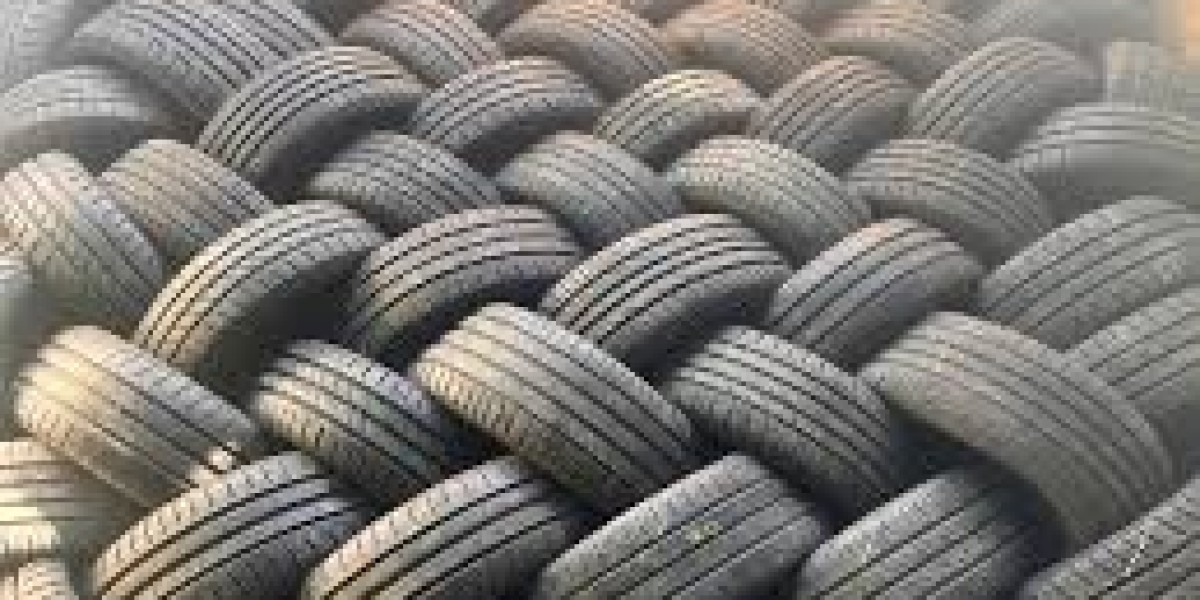In the current economic climate, where every penny counts, the allure of part-worn tyres can be particularly strong for motorists in Hartlepool. Offering a seemingly budget-friendly alternative to new rubber, these second-hand options might appear to be a smart financial choice. However, it is paramount for drivers to understand that the pursuit of a lower price tag on tyres can come with significant, potentially life-threatening, compromises in safety and legal compliance. This article aims to provide a comprehensive guide to part-worn tyres in Hartlepool, dissecting the regulations, the inherent risks, and offering advice on how to identify the rare "best" options, or more accurately, the safest legal choices, within this often-unregulated market.
What Exactly Are Part-Worn Tyres?
Part-worn tyres in hartlepool are simply used tyres that are resold. They can come from various sources, including vehicles written off by insurance companies, or from countries with different minimum tread depth laws where tyres are replaced earlier than the UK's legal minimum. While the idea of recycling tyres has an environmental appeal, the critical distinction lies in their condition and whether they meet the stringent safety and legal requirements for resale.
The Strict Legal Framework for Part-Worn Tyres in the UK
It's a common misconception that part-worn tyres are illegal. In the UK, their sale is legal, but only if they strictly adhere to The Motor Vehicle Tyres (Safety) Regulations 1994 (Regulation 7), which falls under the Consumer Protection Act. These regulations are designed to ensure a basic level of safety. Key legal requirements for part-worn tyres include:
Minimum Tread Depth: The original tread pattern must be clearly visible and must have a minimum depth of at least 2mm across the entire breadth of the tread and around the entire circumference. This is a higher standard for resale than the 1.6mm legal minimum for tyres currently in use.
Structural Integrity: The tyre must be free from any large cuts (exceeding 25mm or 10% of the section width), bulges, lumps, or tears, both internally and externally, that indicate structural separation or failure. No plies or cords should be exposed.
Inflation Test: Before sale, the tyre must have successfully passed an inflation test, proving it has no external defects when inflated to its maximum pressure.
Proper Repairs: Any repairs must have been carried out correctly and comply with British Standard BS AU 159.
Mandatory "PART-WORN" Marking: This is crucial. All part-worn tyres (unless retreaded under specific conditions) must be permanently and legibly marked with the words "PART-WORN" in uppercase letters at least 4mm high. This marking cannot be hot branded or cut into the tyre and must be immediately adjacent to any approval mark (e.g., an 'E' mark).
Original Markings: The tyre must display all original marks moulded onto its sidewall, including the EC approval mark, speed category, and load capacity index.
The responsibility for meeting these strict conditions lies entirely with the seller. Worryingly, numerous investigations by organisations like TyreSafe, in collaboration with Trading Standards, have consistently found high rates of non-compliance, with a significant proportion of part-worn tyres being sold illegally and posing serious safety hazards.
The Hidden Dangers and False Economy of Part-Worn Tyres
While the upfront cost savings can be attractive, the potential dangers and the true long-term cost of part-worn tyres often far outweigh any initial financial benefit:
Unknown History is a Major Risk: When you buy a part-worn tyre, you have no way of knowing its past. Was it driven on insufficient pressure? Did it suffer internal damage from hitting a pothole or kerb? Was it involved in an accident? Such damage is often invisible externally and can compromise the tyre's structural integrity, leading to sudden and catastrophic failure at speed. Part-worn tyres are not legally required to undergo X-ray examination for internal defects.
Reduced Tread Depth Means Reduced Safety: Even if a part-worn tyre meets the 2mm legal minimum for sale, it offers significantly less grip and water displacement capabilities compared to a new tyre (which typically has 8mm of tread). This dramatically increases braking distances, especially in wet conditions, and increases the risk of aquaplaning. Studies have shown that a tyre with 1.6mm tread can take over 12 meters longer to stop from 50mph in the wet than a new tyre. The difference between 2mm and 8mm is substantial.
False Economy in the Long Run: While cheaper initially, part-worn tyres will wear out much faster due to their already reduced tread. This means more frequent replacements, and when calculated by "cost per mm of usable tread," they often prove to be more expensive than new tyres over their lifespan.
Insurance Implications: In the unfortunate event of an accident, if your part-worn tyres are found to be illegal or unsafe, your insurance policy could be invalidated, leaving you personally liable for damages and injuries.
Mismatched Tyres: For optimal vehicle handling and safety, it's recommended to replace tyres in axle pairs. Part-worn tyre suppliers may not always have matching pairs in terms of brand, tread pattern, or wear level, which can negatively affect vehicle stability and handling, particularly on four-wheel-drive vehicles.
The Elusive "Best Part-Worn Tyres Hartlepool"
The phrase best part-worn tyres in hartlepool is a complex one. Reputable tyre safety organizations like TyreSafe consistently advise against buying part-worn tyres due to the inherent risks and documented high rates of non-compliance. From a safety perspective, new tyres are always the "best" option.
However, if financial constraints make part-worn tyres a necessity in Hartlepool, the focus must shift from finding the "best" to finding the safest and most legally compliant supplier. This means a supplier who goes above and beyond the bare minimum legal requirements and prioritizes customer safety.
How to Identify a Reputable Part-Worn Tyre Supplier in Hartlepool
If you choose to consider part-worn tyres, here's what to look for in a Hartlepool supplier to minimise your risk:
Transparency and Legal Compliance: The supplier should be fully knowledgeable about and meticulously adhere to all aspects of The Motor Vehicle Tyres (Safety) Regulations 1994. Don't hesitate to ask about their inspection process.
Clear "PART-WORN" Marking: Visually inspect every tyre. The "PART-WORN" marking must be clear, permanent, in capital letters at least 4mm high, and located next to the approval mark. If it's absent, poorly applied, or looks like it's been cut in, do not buy the tyre.
Thorough Inspection Process: A responsible supplier will perform a comprehensive external and internal visual inspection, checking for any cuts, bulges, exposed cords, or signs of damage or improper repairs. They should be willing to show you the tyre inflated and demonstrate its structural integrity.
Tread Depth Well Above Minimum: While 2mm is the legal minimum for sale, aim for tyres with significantly more tread (e.g., 4mm or more) to ensure a safer product with a longer usable life. Use a tread depth gauge or the "20p test" (if the outer band of a 20p coin is visible when inserted into the tread, the tyre is near or below the legal limit).
Check the Tyre's Age (DOT Code): Tyres degrade over time, regardless of how much tread is left. Look for the four-digit DOT code on the sidewall (e.g., 3523 means 35th week of 2023). Avoid tyres that are more than 5-6 years old.
Properly Repaired Tyres: If a tyre has been repaired, ensure the repair was done to British Standard BS AU 159. A reputable seller should confirm this.
Professional Fitting and Balancing: Always ensure the supplier offers professional fitting and wheel balancing. Incorrect fitting or balancing can lead to uneven wear, vibrations, and safety issues.
Fair Pricing: Be wary of excessively cheap prices, as this can be a red flag for non-compliance or dangerously poor quality.
Reputation and Reviews: Check online reviews and local recommendations for tyre centres in Hartlepool. Look for feedback specifically praising the quality and safety of their part-worn tyres, not just general service.
Matching Axle Pairs: Ideally, you should replace tyres in pairs on the same axle. A good supplier should be able to offer matching part-worn pairs if required.
Tyre Centres in Hartlepool to Consider (and Question)
Hartlepool has several established tyre centres. While many primarily focus on new tyre sales, some may offer part-worn options. It's crucial to approach any purchase of part-worn tyres with a critical eye, even from seemingly reputable establishments. Companies like Stag Tyres, Tyre Zone, and national chains such as National Tyres and Autocare have a presence in Hartlepool and are known for their general tyre services. If considering part-worn from these or any other local provider:
Ask Direct Questions: Inquire specifically about their part-worn tyre stock, their inspection procedures, and how they guarantee compliance with the UK regulations.
Conduct Your Own Inspection: Don't rely solely on the seller's word. Visually inspect the tyres yourself for all the points mentioned above, particularly the "PART-WORN" marking and tread depth.
Compare with Budget New Tyres: Before committing to part-worn, get a quote for new budget tyres. Often, the long-term value, safety, and peace of mind offered by new tyres outweigh the initial savings of a part-worn option.
Conclusion: Prioritising Safety on Hartlepool's Roads
For drivers in Hartlepool, the decision to purchase part-worn tyres is a significant one. While the cost savings are a powerful motivator, the documented risks associated with illegally or improperly sold part-worn tyres are undeniable. Ultimately, a tyre is the only point of contact between your vehicle and the road, and its condition is paramount to your safety and the safety of others.








